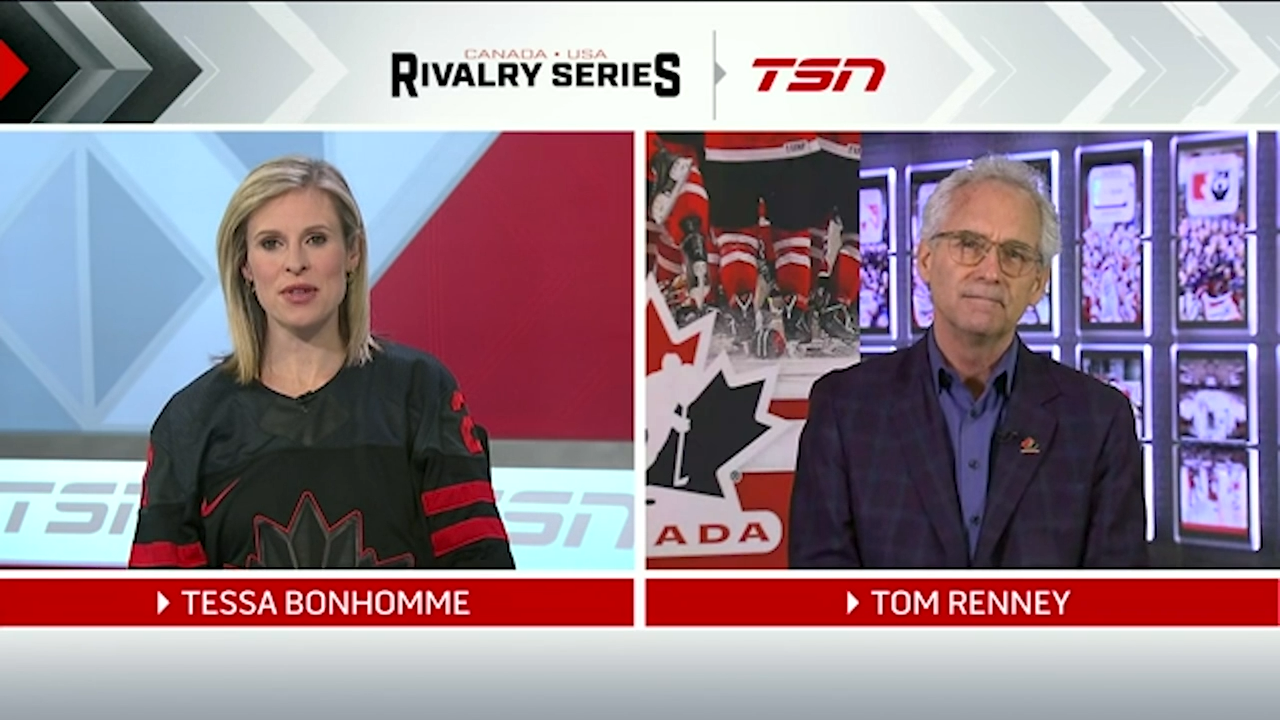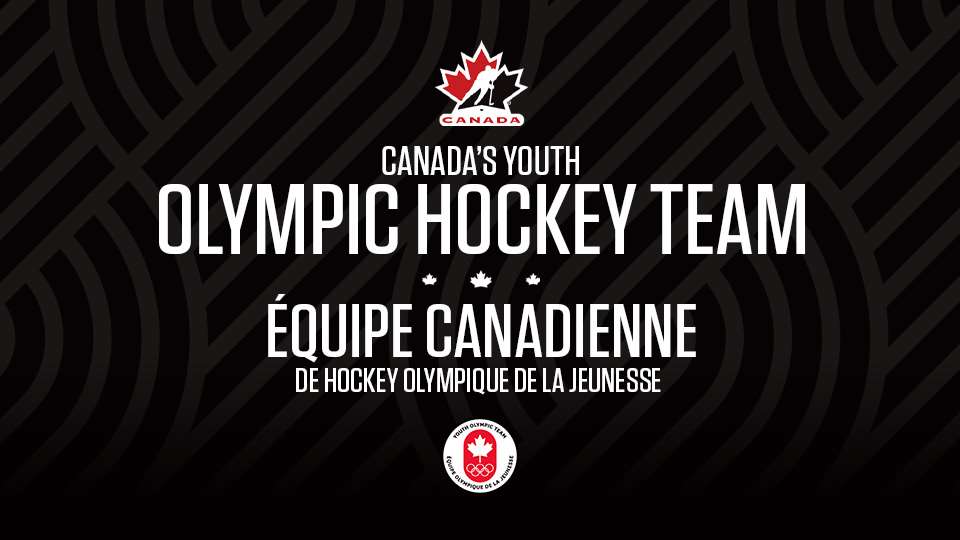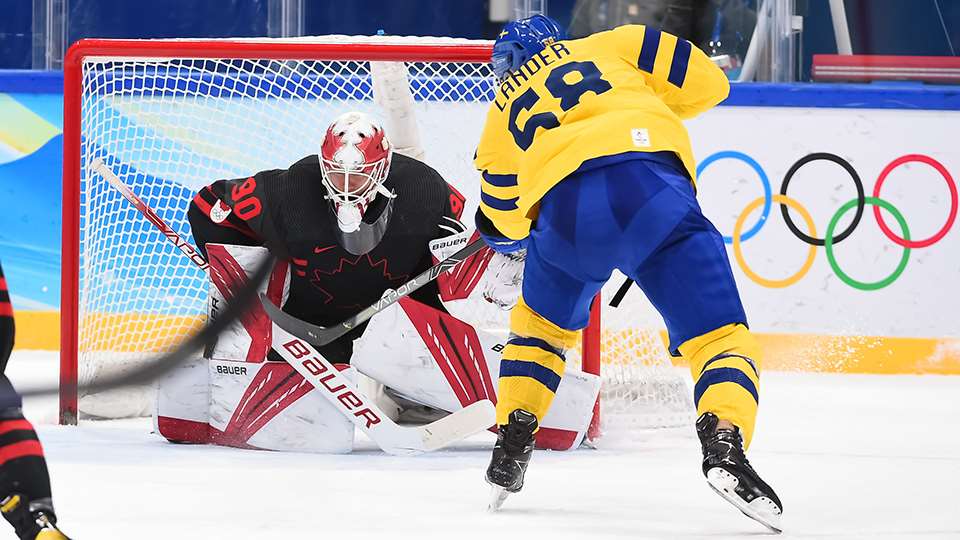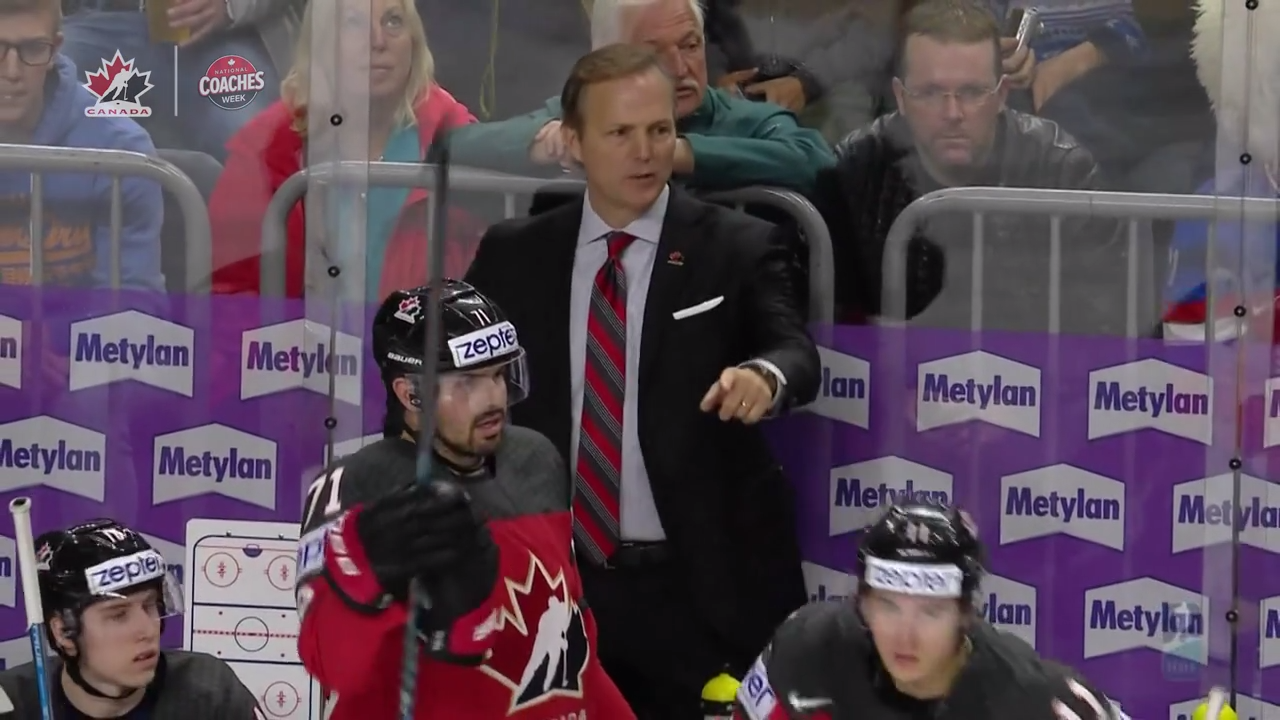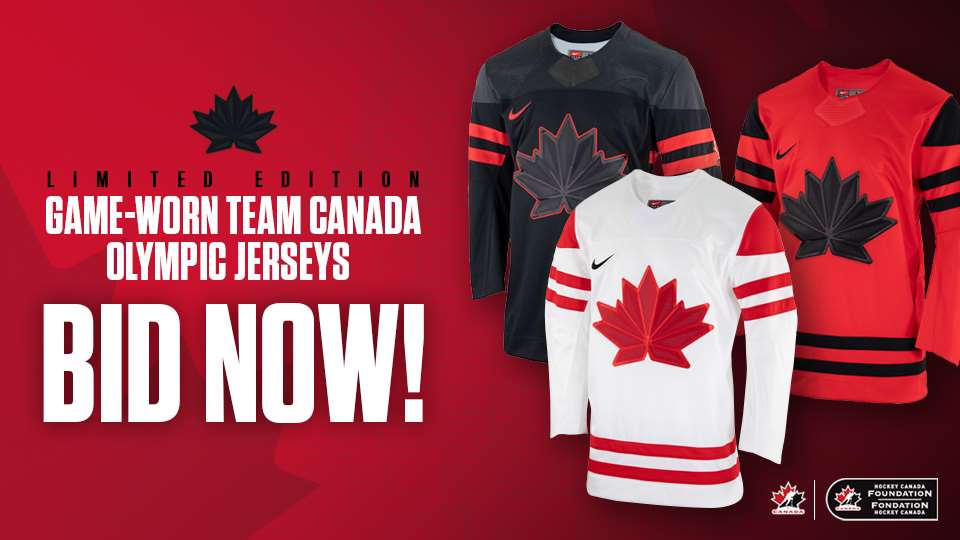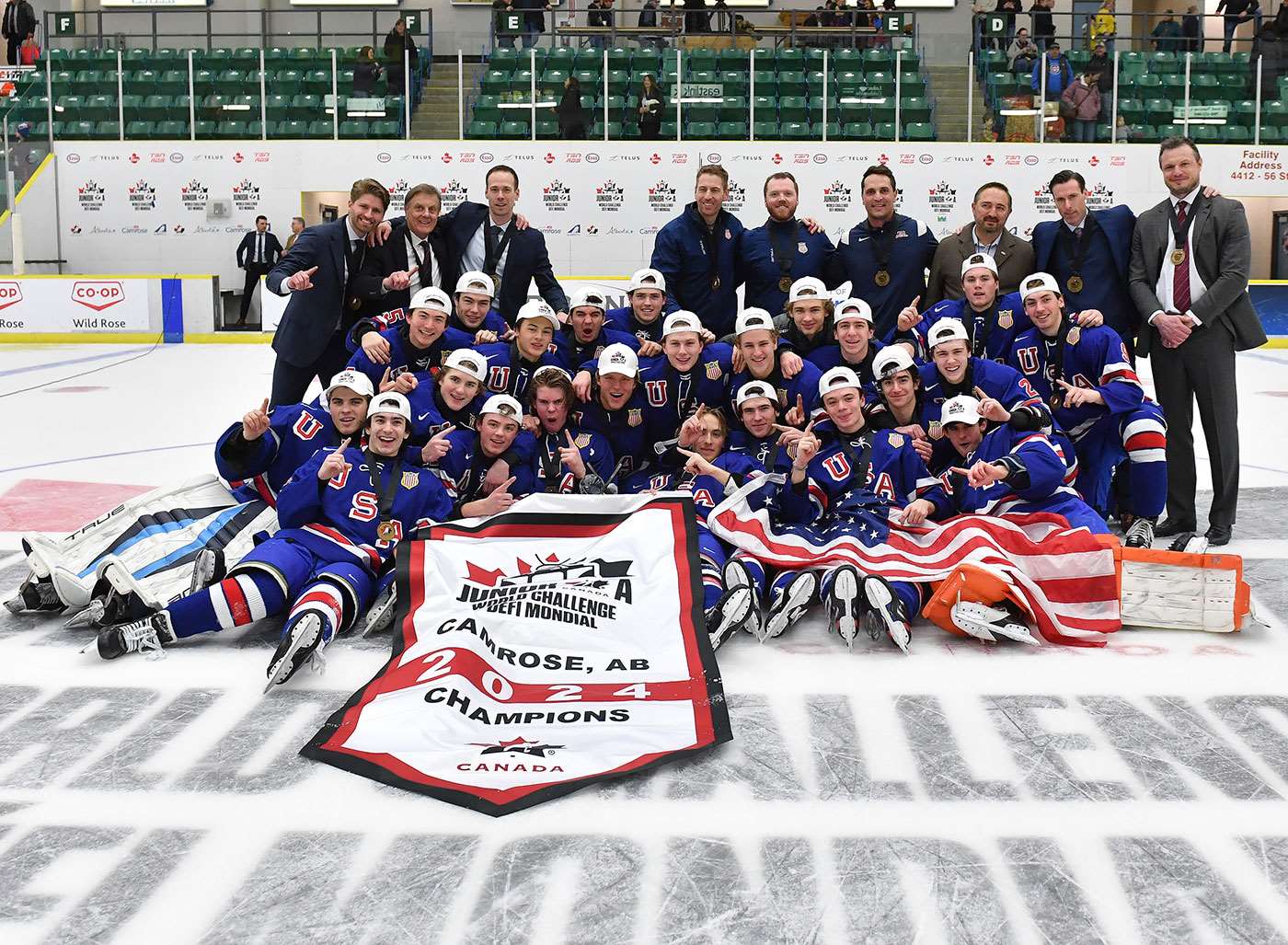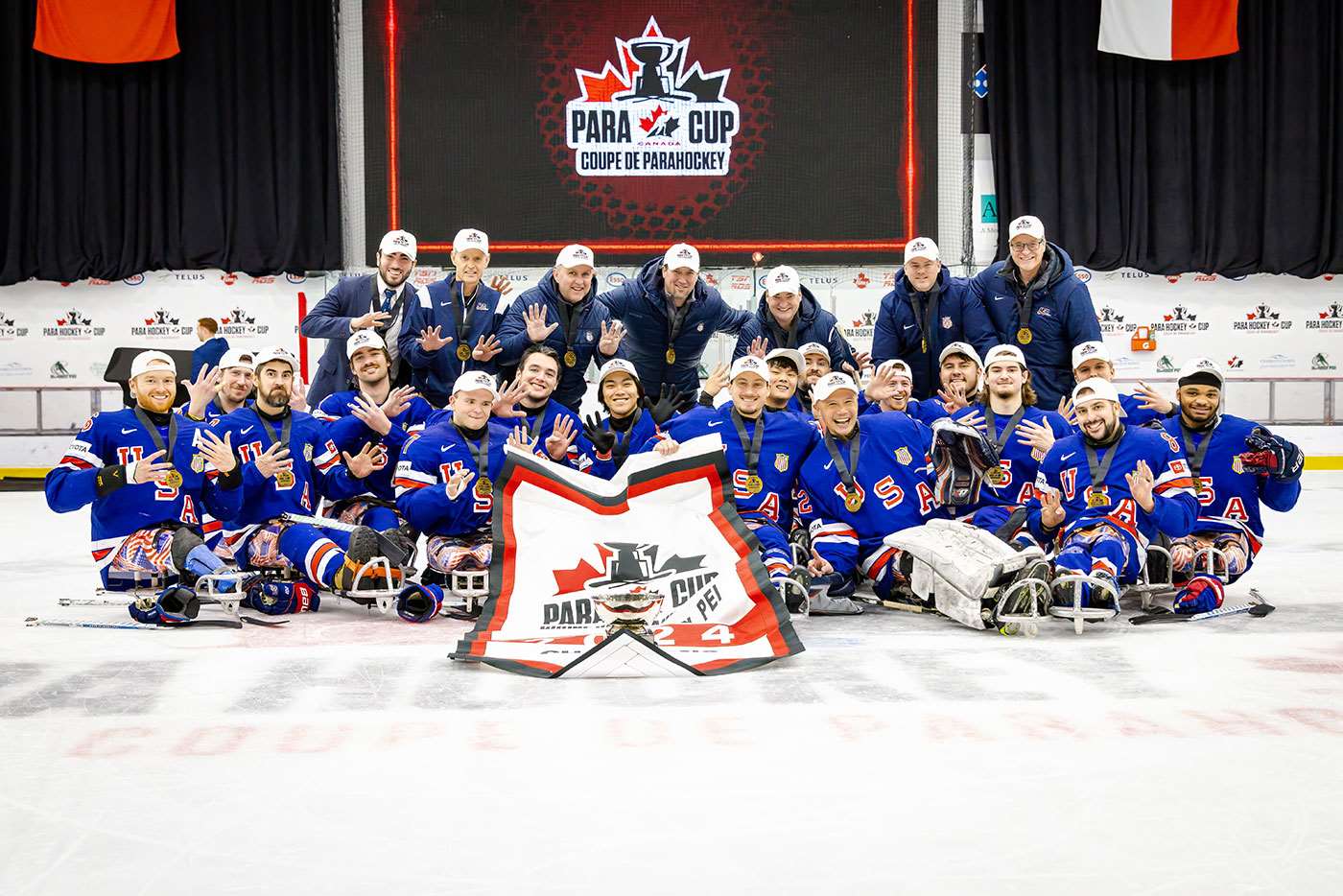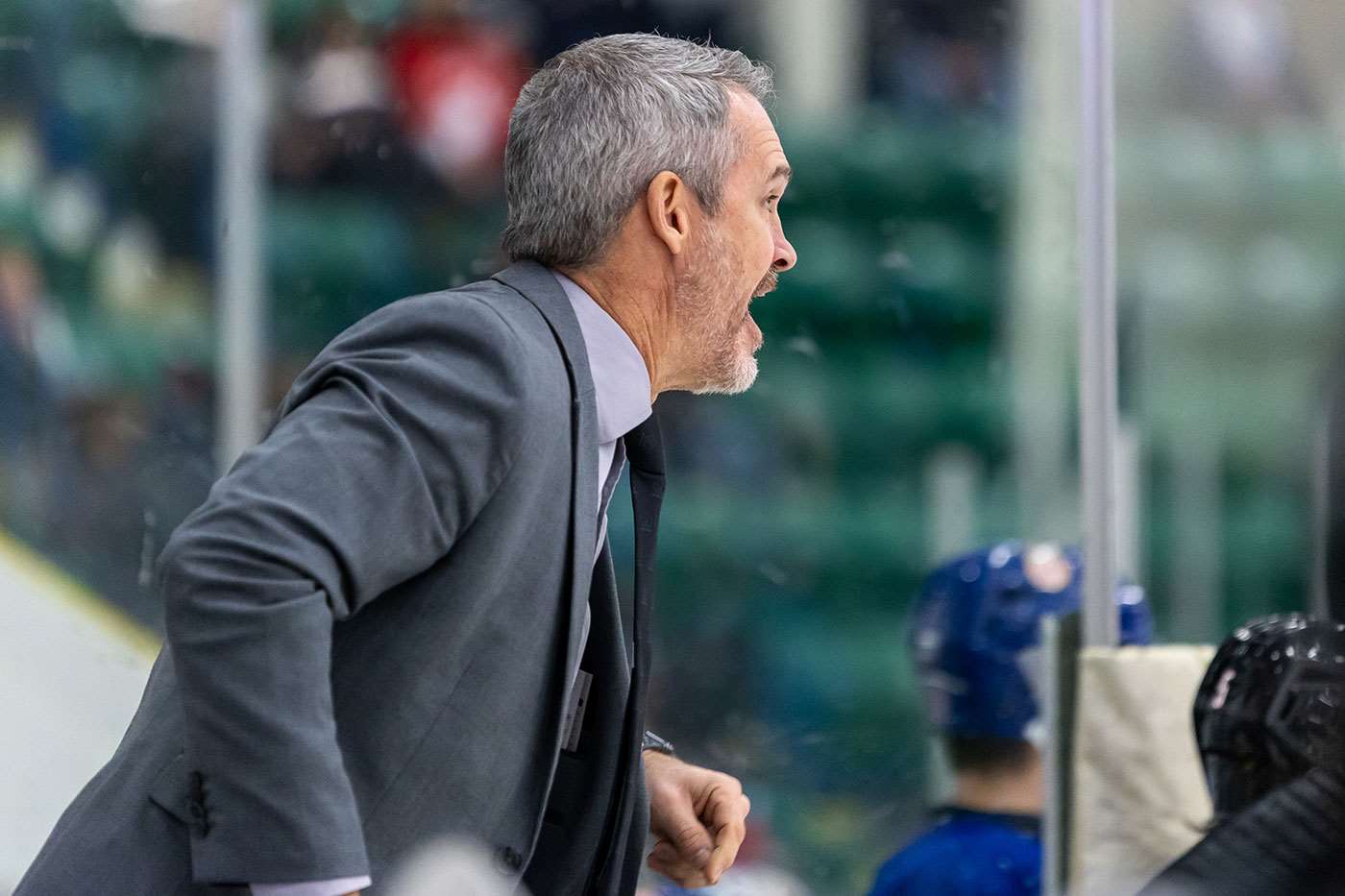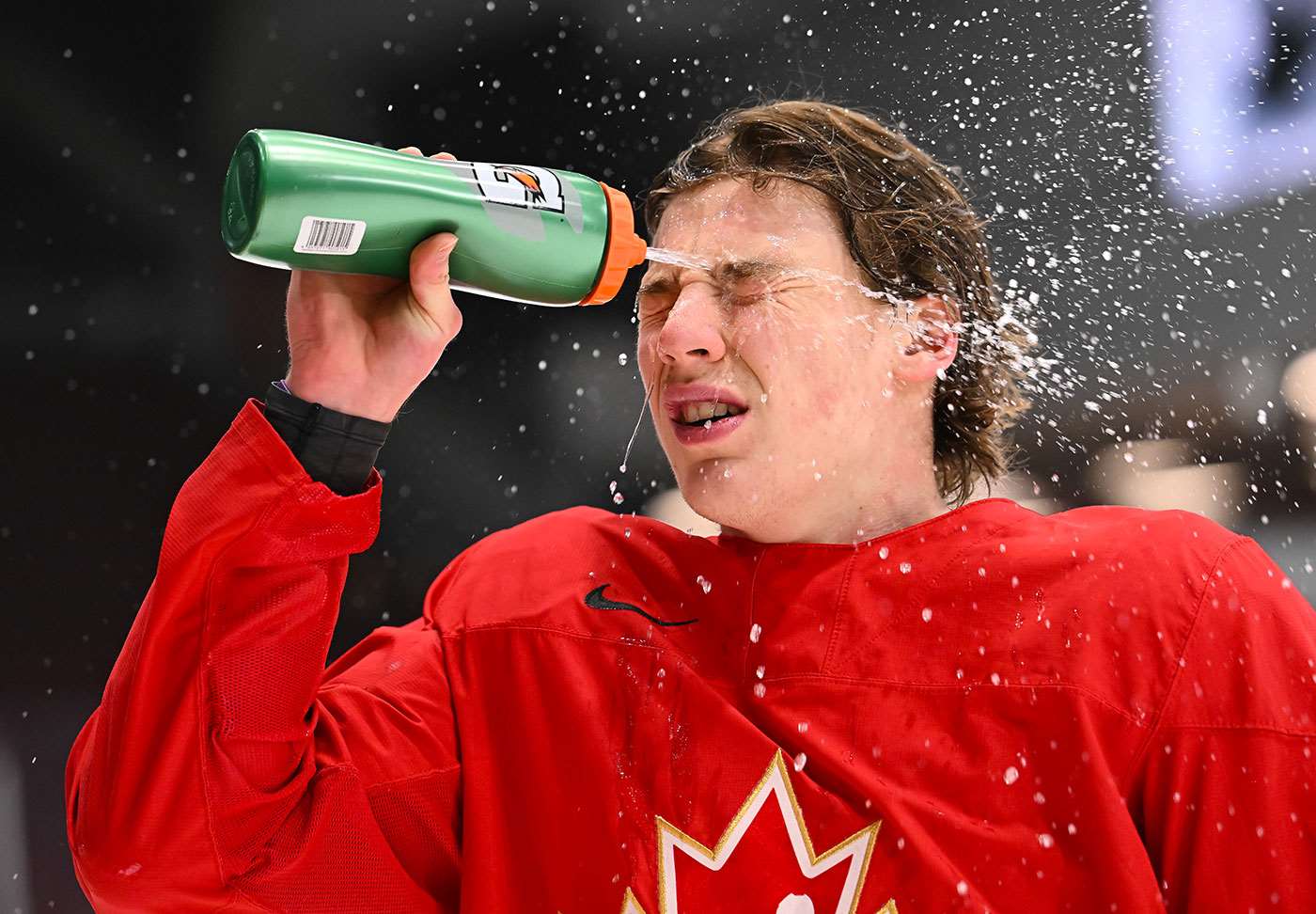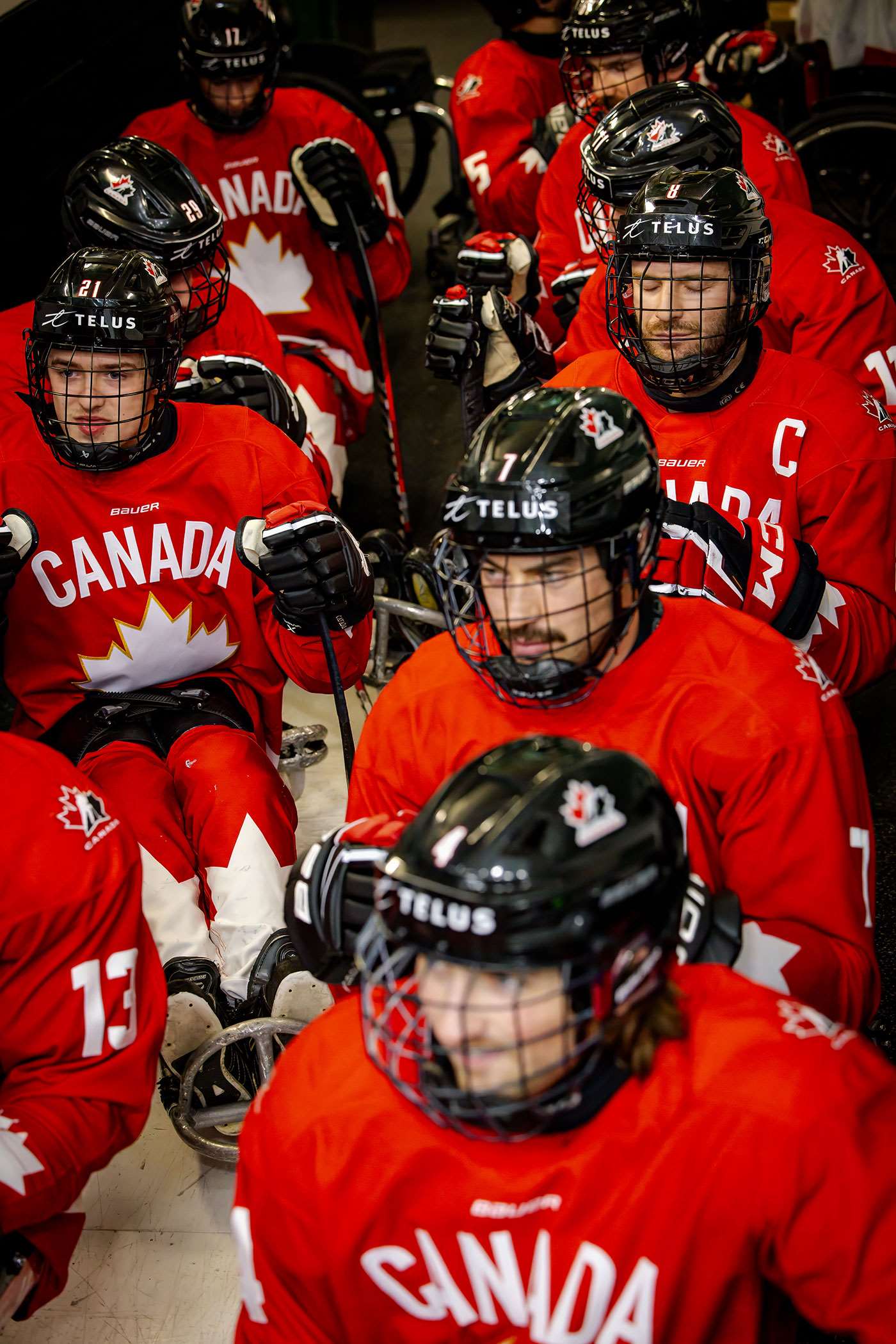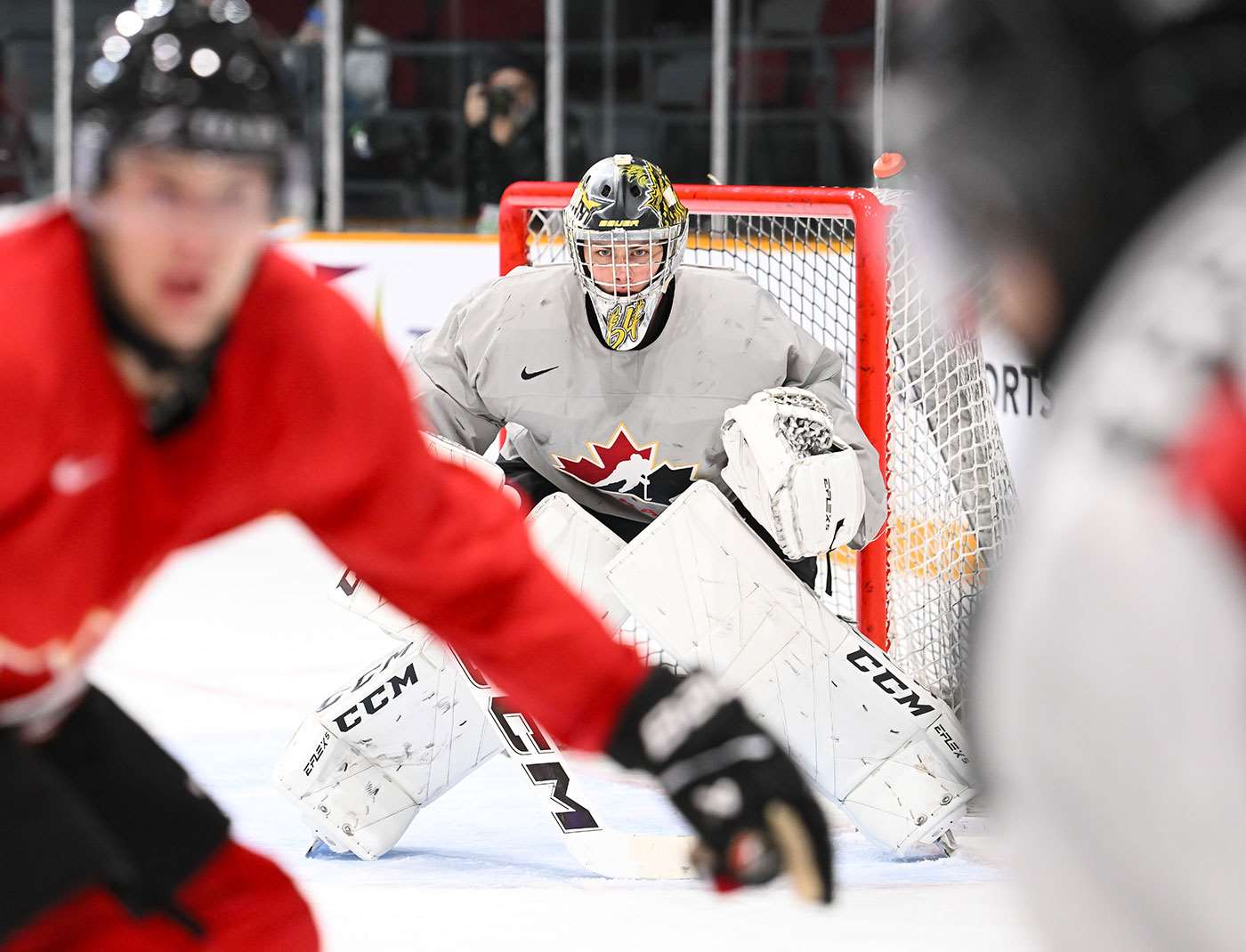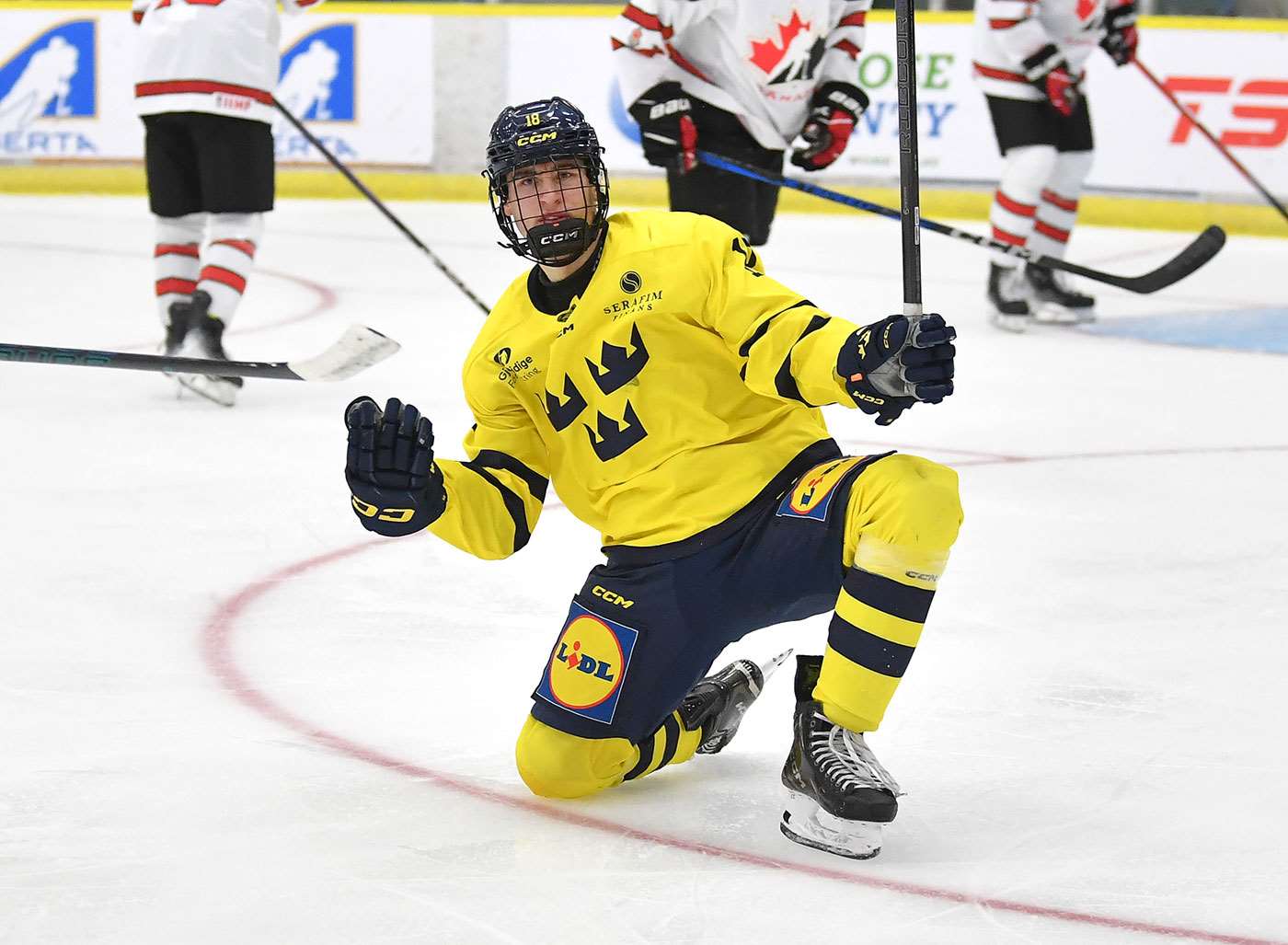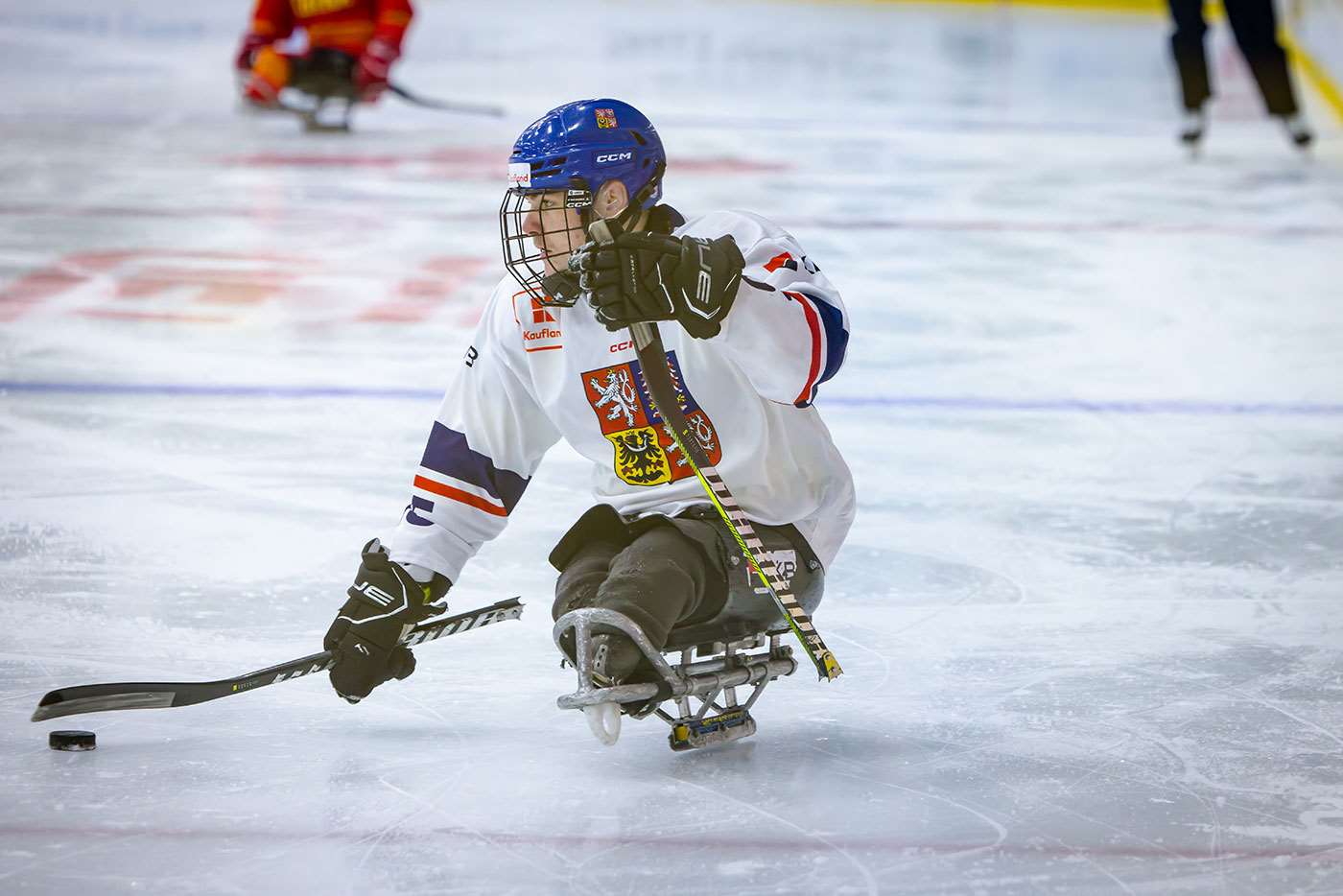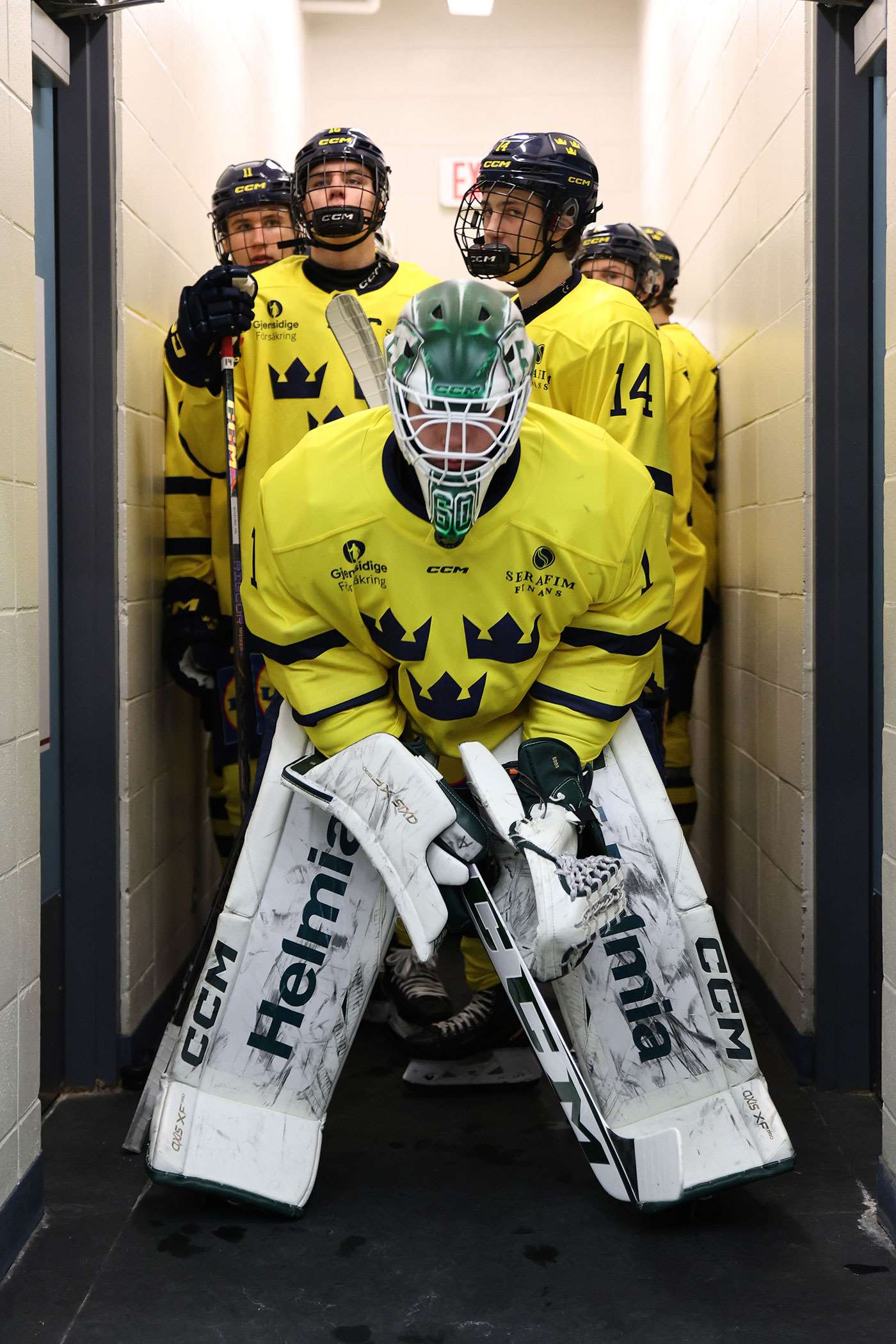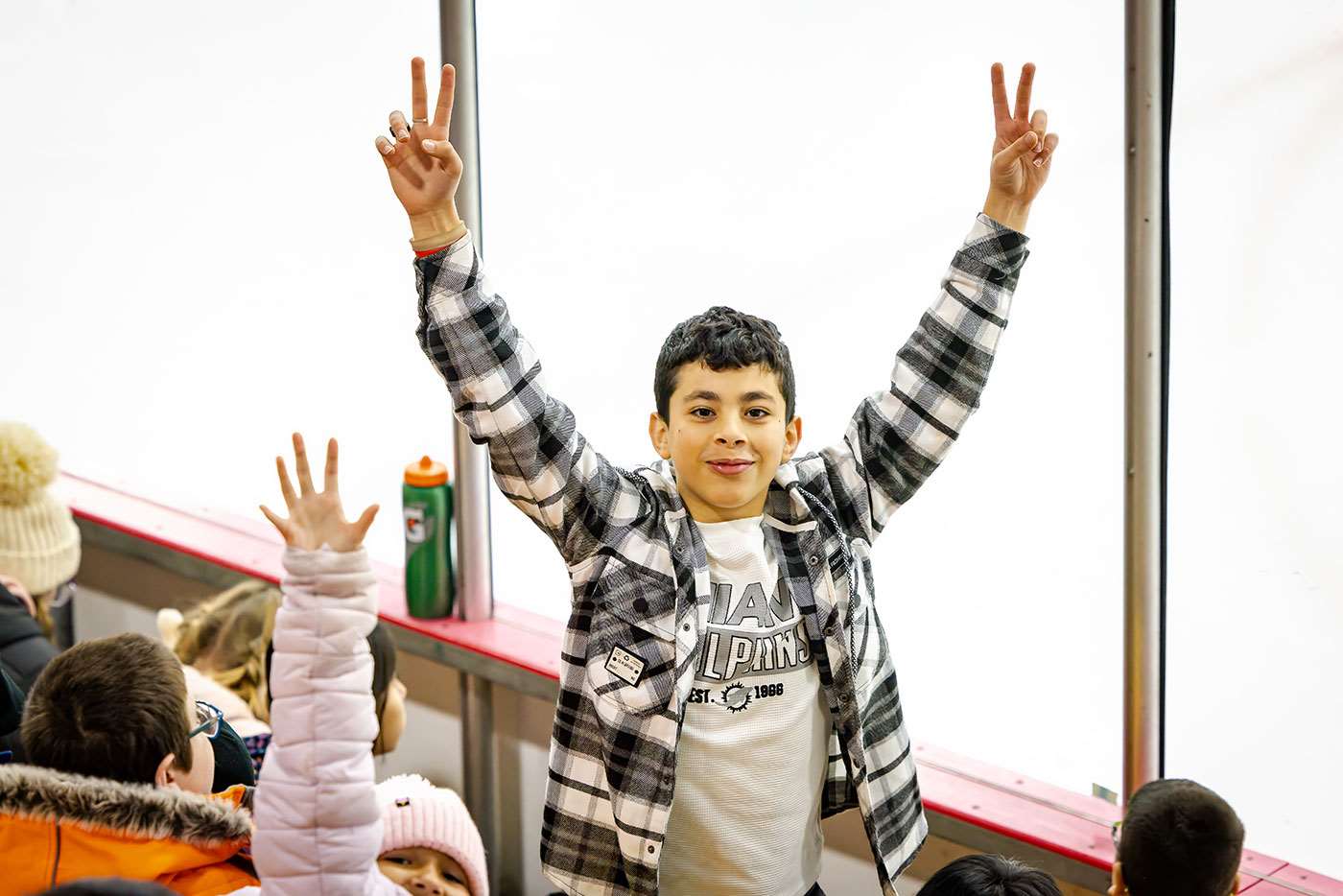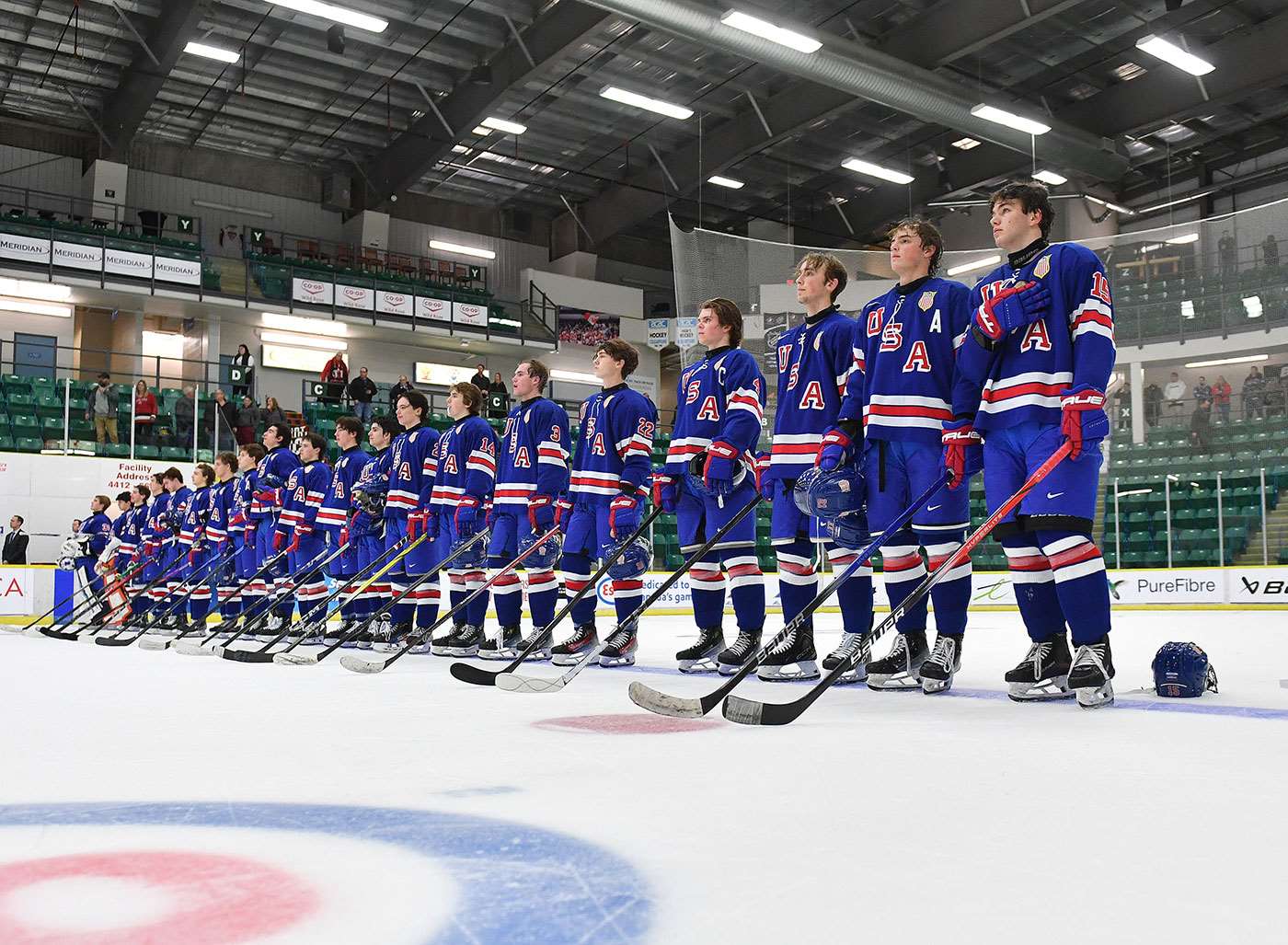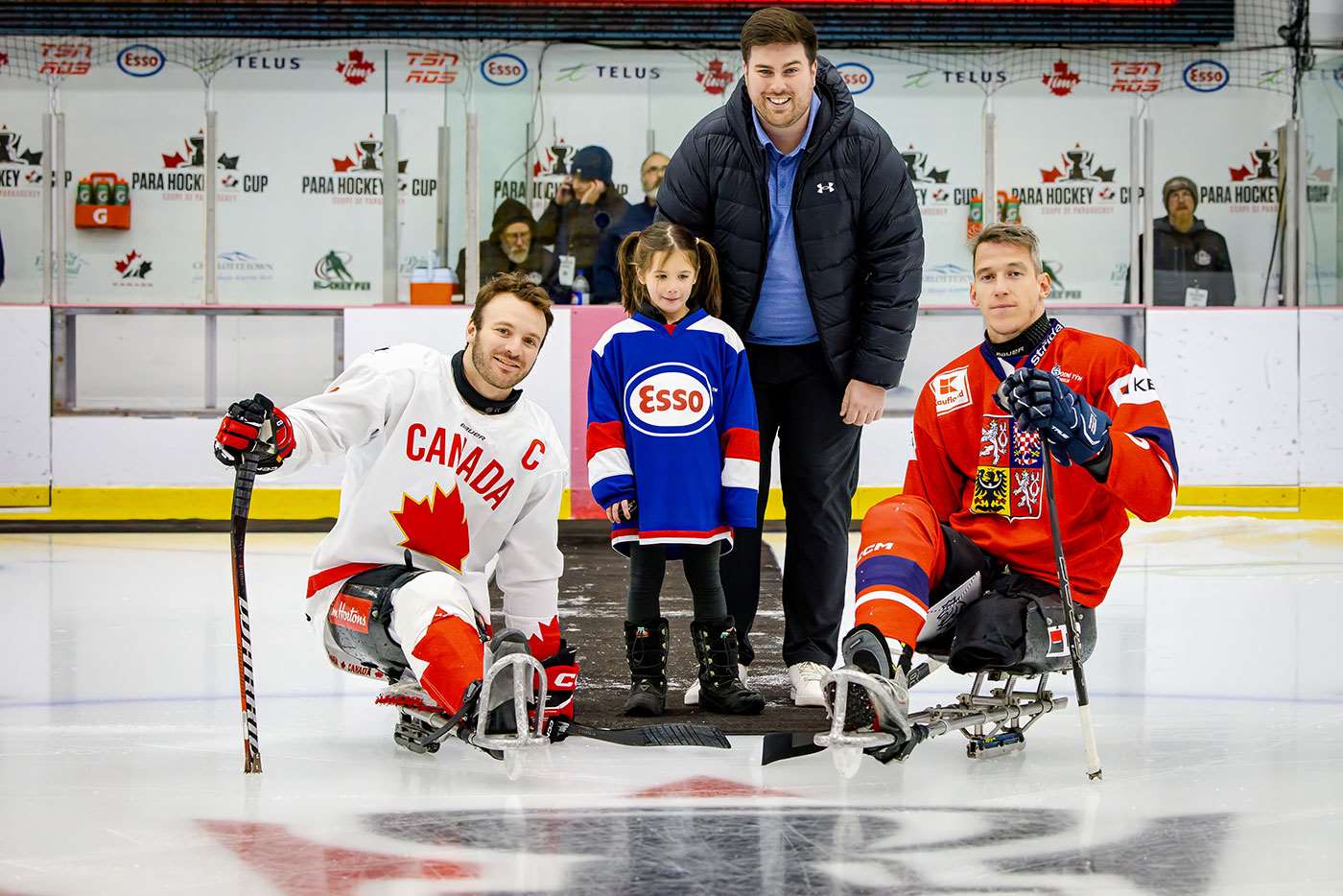
Schedule
Team Canada (Men)
IIHF World Junior Championship | Dec. 26, 2024-Jan. 5, 2025
Spengler Cup | Dec. 26-31, 2024
4 Nations Face-Off | Feb 12-20, 2025
IIHF U18 World Championship | April 23-May 3, 2025
IIHF World Championship | May 9-25, 2025
U17 World Challenge | Nov. 3-9, 2024
Hlinka Gretzky Cup | Aug. 5-10, 2024
Junior A World Challenge | Dec. 9-15, 2024
National Junior Team vs. USPORTS | Dec 12-13, 2024
Search
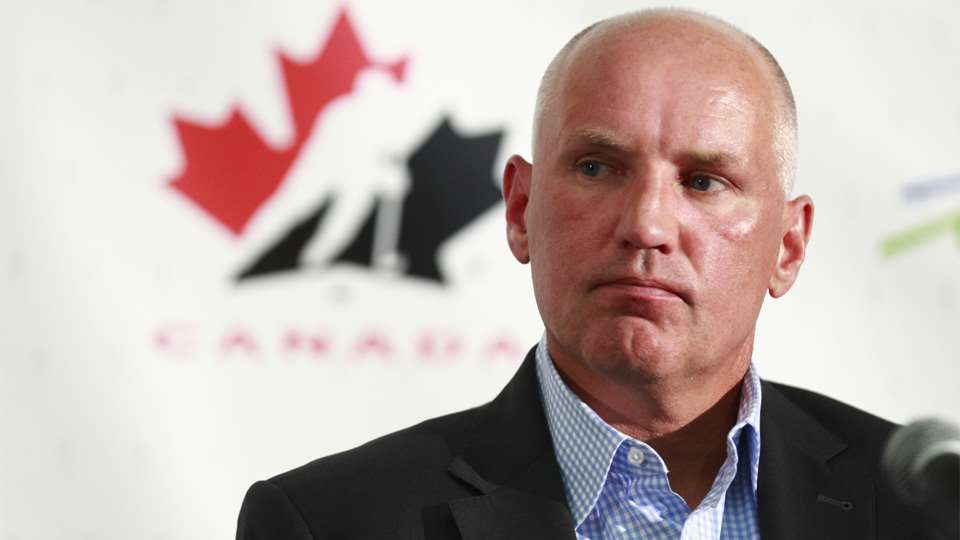

Building towards Beijing
With Doug Armstrong and his management group in place, the year-long sprint to the 2022 Olympic Winter Games is officially underway

Three-hundred-and-sixty-six days away from the start of the 2022 Olympic Winter Games, the management group for Canada’s Men’s Olympic Team is off and running on the road to Beijing.
Doug Armstrong will take the reins as general manager, leading a group that includes associate general manager Ken Holland, assistant general managers Ron Francis, Roberto Luongo and Don Sweeney and Hockey Canada senior vice-president of national teams Scott Salmond.
It’ll be the third Olympic tour for Armstrong, who served under Steve Yzerman as part of Canada’s gold medal-winning entries in 2010 and 2014.
“It's a great honour any time you can work with Hockey Canada,” Armstrong says. “Being at the last two Olympics that the NHL participated in made my eyes wide open to what we're getting into here, but missing it in 2018 [when NHL players did not participate] has only given a hunger back to everyone.”
The group he will work with is an eclectic one.
Holland, president of hockey operations and general manager of the Edmonton Oilers, is a management veteran who, like Armstrong, returns for a third Olympics.
Francis, general manager of the expansion Seattle Kraken, and Sweeney, who holds the same position with the Boston Bruins, are new to the Olympic journey but have plenty of experience building successful teams in the National Hockey League.
Salmond has his finger on the pulse of Canadian hockey, having worked with most, of not all, of Canada’s Olympic hopefuls through his experiences at past Games, the IIHF World Championship and IIHF World Junior Championship.
And then there’s Luongo, a special advisor with the Florida Panthers who is a familiar face to Canadian hockey fans; the goaltender played in three Olympics, winning gold in his final two appearances in 2010 and 2014.
“I think it's important to have someone that had been there, done that the last three times the NHL has gone to the Olympics,” Armstrong says of Luongo. “He understands what goes into today's NHL players. Obviously his experience in goal is going to help us pick the right participants in that area, but his overall experience with the Olympics and in the NHL [is important]. I think he's going to be a great asset to this group.”
With management in place, attention turns to player evaluation. There have already been preliminary meetings, and with the 2020-21 NHL season underway, albeit in a unique alignment, the scouting process has begun.
“What we've tried to do is slot each management person with one division,” Armstrong says. “Kenny has the North, I have the West, Roberto has the South and Donnie has the East. So it works well for that. And then Ronnie with his job, having to prepare an expansion franchise, he has to watch all the different teams. So I think we have our bases covered.
“We're [meeting] virtually, which is a new task for all of us, but no different than any other country. It's a different challenge, and we're working and meeting once every three or four weeks to discuss what we're seeing and try and whittle our group down to a shorter list.”
The next major decision for Armstrong is which coaches will lead Canada behind the bench, an announcement he doesn’t expect to make until the summer.
While he won’t divulge any of the names on his short list, he says he knows exactly what he wants from his staff.
“It's like when you're picking players,” Armstrong says. “We're not picking an all-star team, we're trying to pick a team. So we're going to try to pick coaches that that can work together, that have synergy with each other, [and] that can check all the boxes to prepare the team to play.”
As for the roster itself, the general manager expects a little bit of turnover from the last few best-on-best international competitions as the next generation plays its way into the conversation.
That doesn’t mean the current crop of stars who have kept the Maple Leaf atop the hockey world for the last decade (since 2010, Canada has won two Olympic gold medals, two world titles and a World Cup) aren’t on the radar, but it means the competition for the 25 roster spots is wide open.
“There are some great young players out there that have never been on [a] stage [like the Olympics],” Armstrong says. “So there are going to be a lot of fresh faces. The game has evolved. The game has changed. We want to put a group together that is most importantly a team, but it's going to be a fast, skill-based team.”
For more information: |
- <
- >

















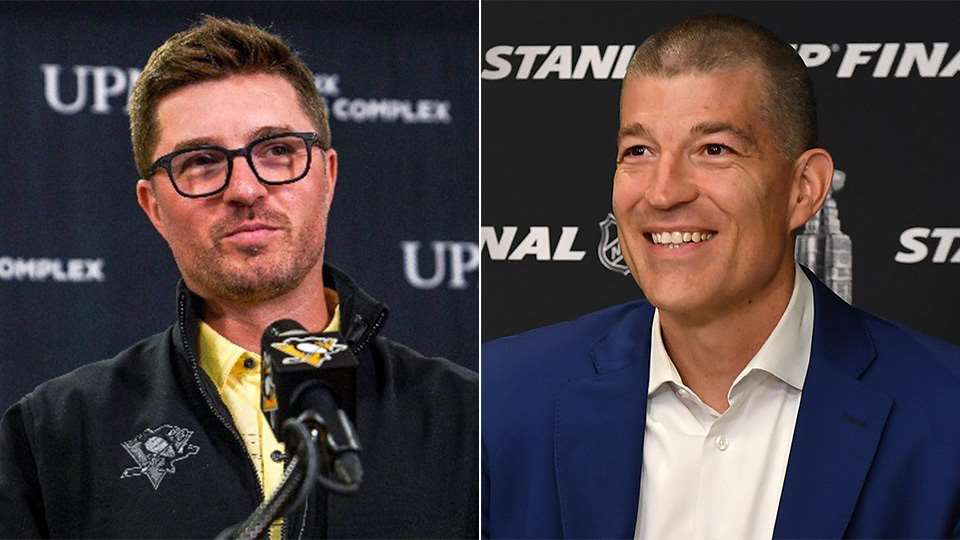
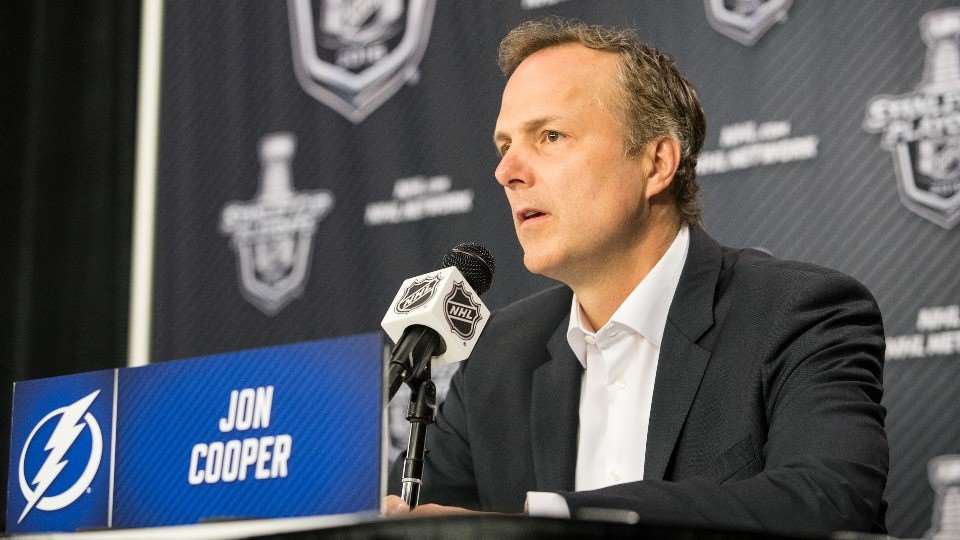
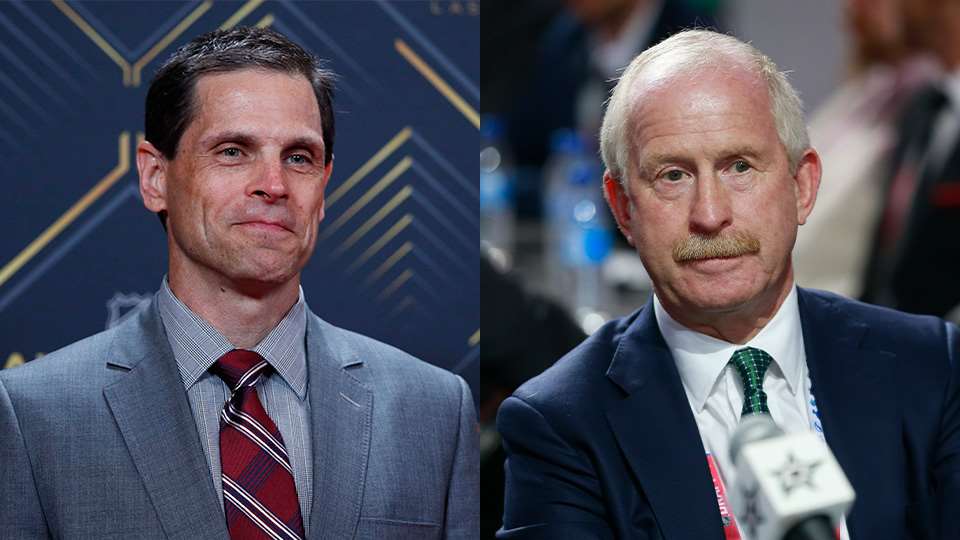
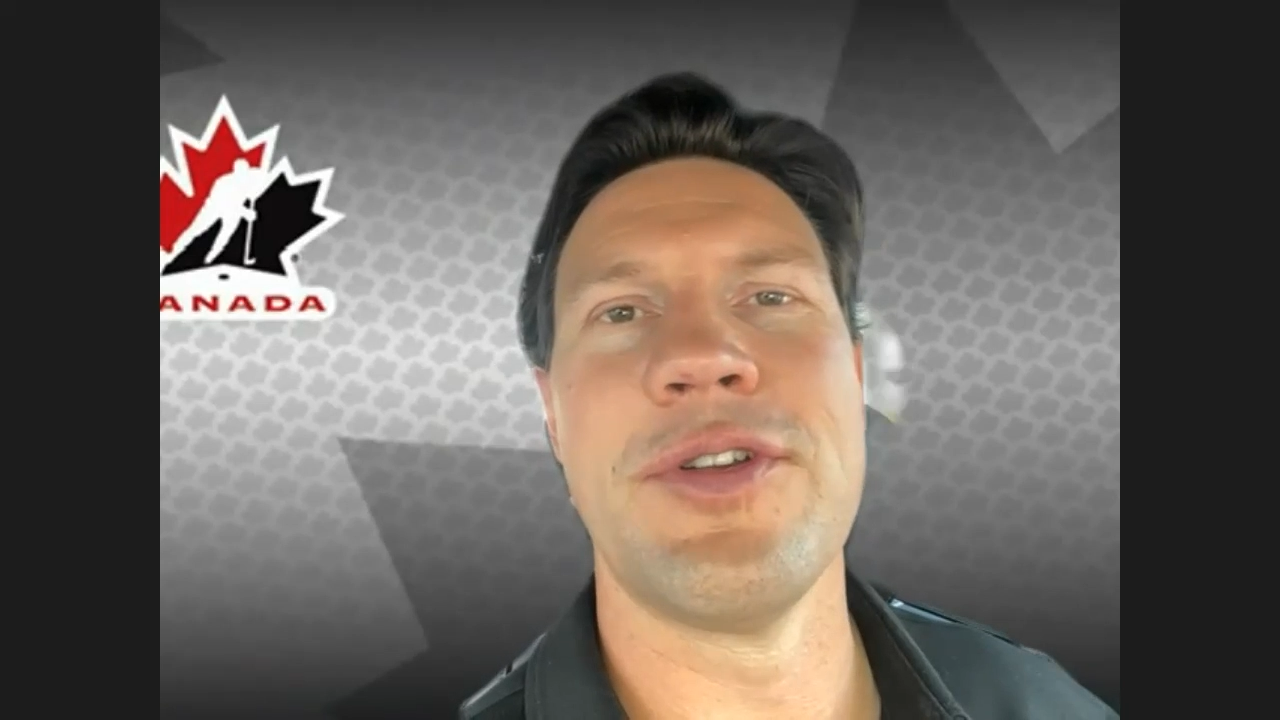
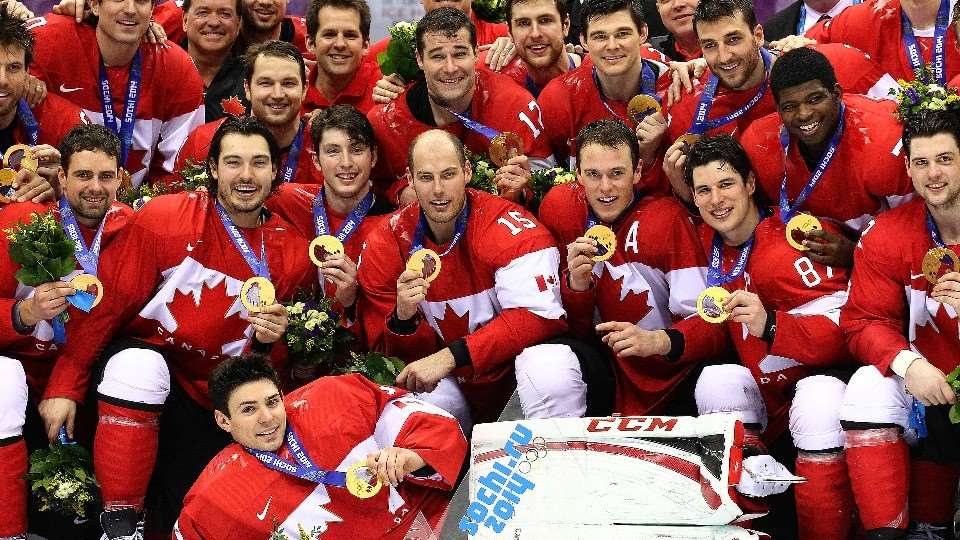
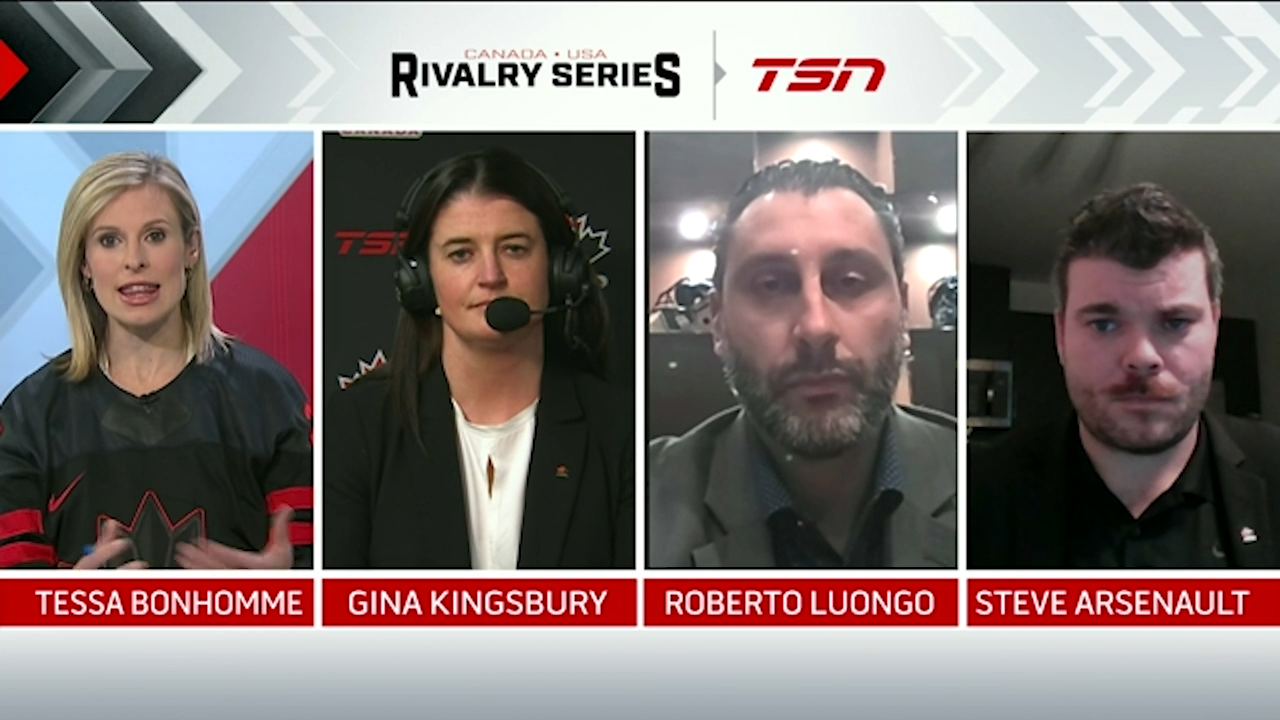
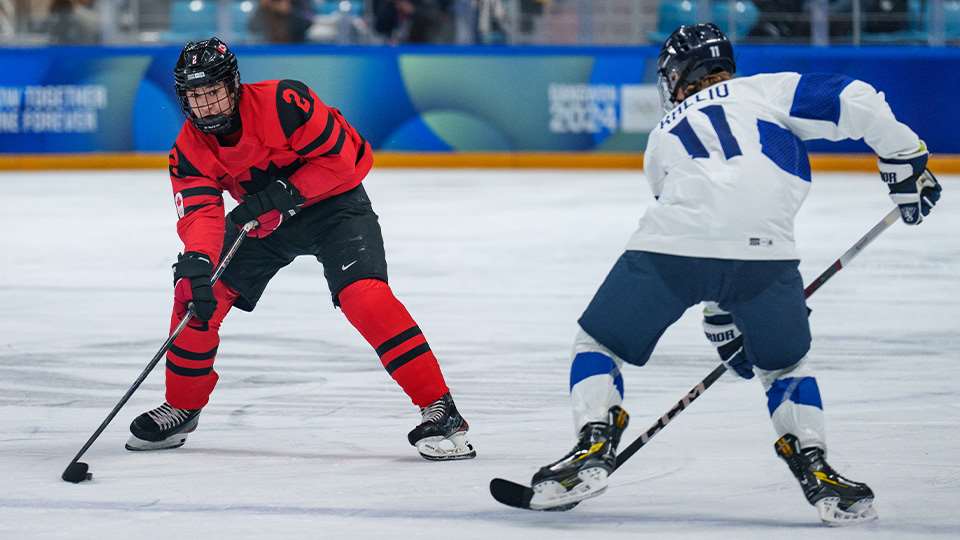
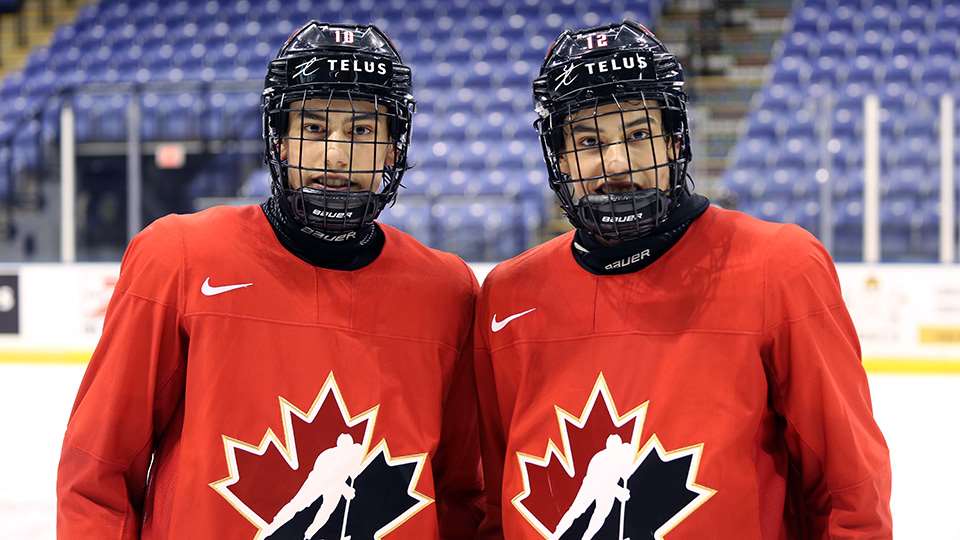
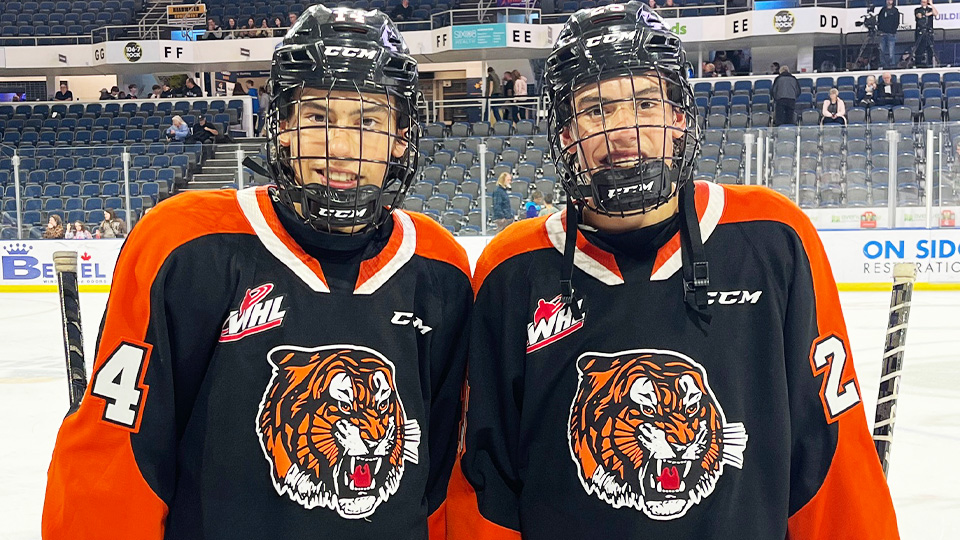
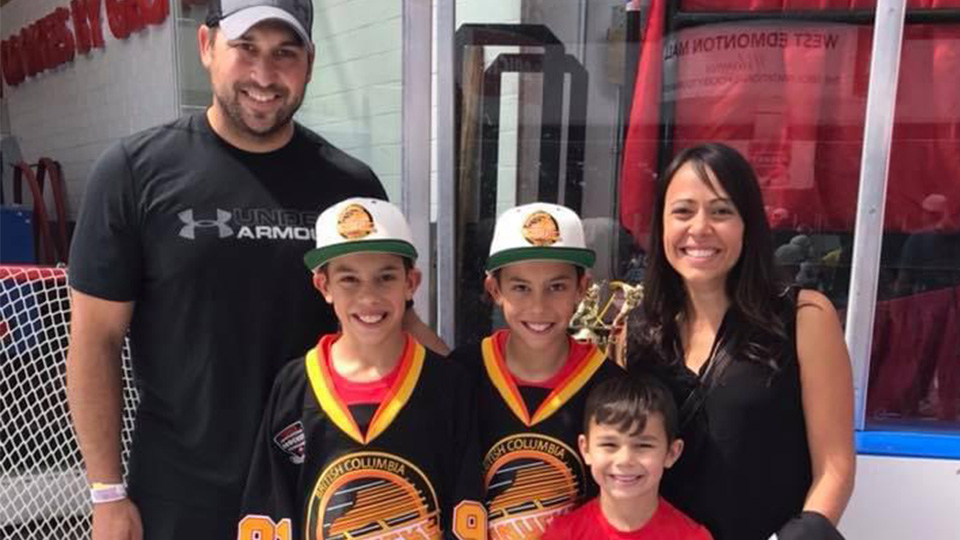
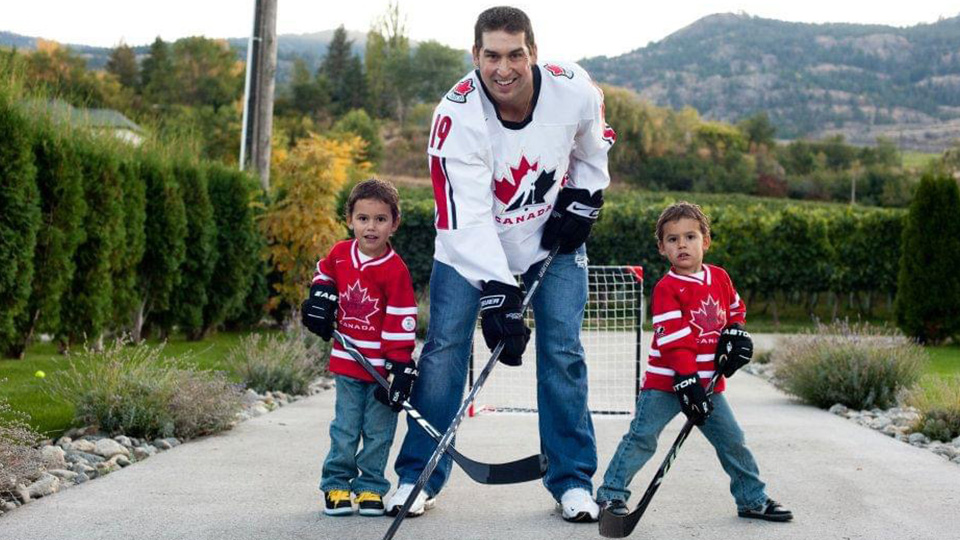 With all that success in the family, the twins hope to continue to represent
the Ruck name with pride on the international stage.
“We’ve both dreamed of putting on that jersey,” Liam says. “A lot of
Canadian kids have that dream, and to have the opportunity to do that is
really exciting for us and the family."
With all that success in the family, the twins hope to continue to represent
the Ruck name with pride on the international stage.
“We’ve both dreamed of putting on that jersey,” Liam says. “A lot of
Canadian kids have that dream, and to have the opportunity to do that is
really exciting for us and the family."